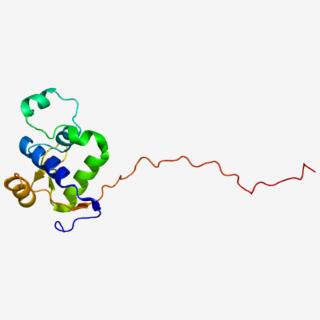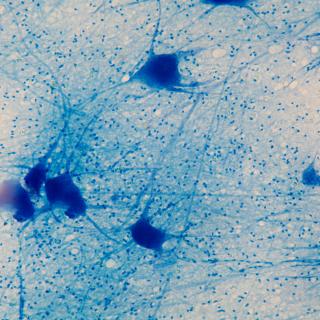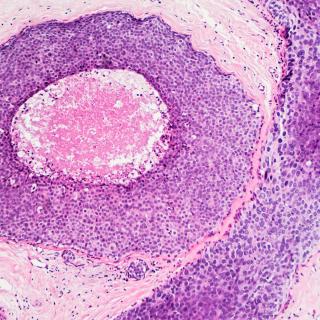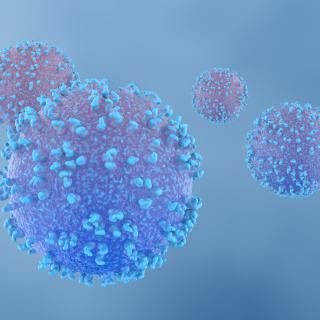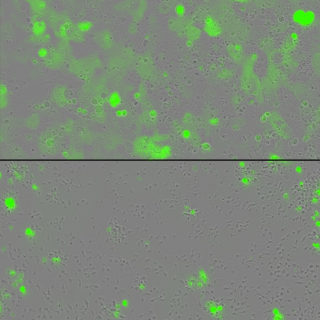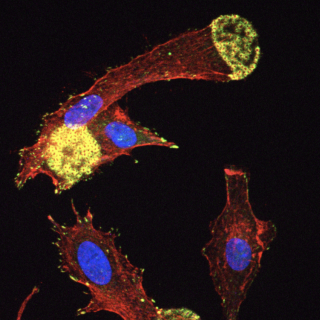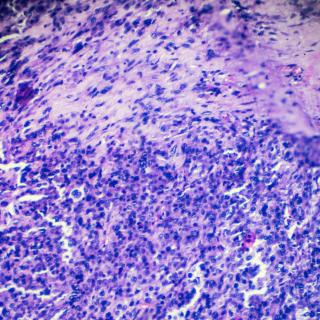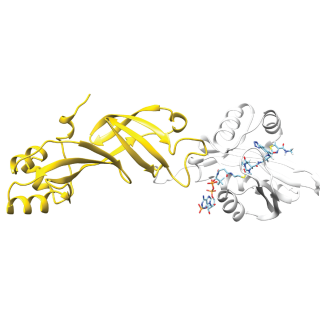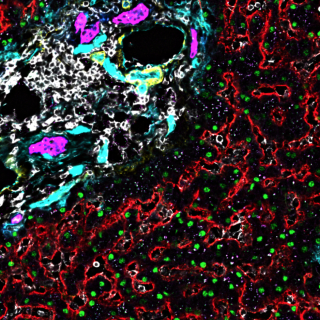Our Discoveries
Inactivating the WRN protein could kill colorectal and other cancer cells
Rapid inactivation of the Werner Syndrome helicase (WRN), a protein upon which cancer cells that exhibit microsatellite instability often rely for survival, could be effective in killing colorectal and other cancer cells and potentially guide the development of inhibitor drugs.
Read MoreFDA grants orphan drug designation to indotecan for the treatment of glioma
The U.S. Food and Drug Administration (FDA) granted orphan drug status to LMP400 (indotecan) for use in patients with malignant glioma, a cancer of the brain that begins in glial cells (cells that surround and support nerve cells).
Read MorePopulation-specific tumor mutation patterns may reflect breast cancer health disparities
African American, European American and Kenyan patients with breast cancer have different patterns of tumor mutations.
Read MoreNew insights show faulty immune cells are trained to become healthy
Researchers traditionally believed faulty T cells that have the potential to attack someone’s own tissues were eliminated before the cells leave the thymus. Now, research in mice shows that these autoreactive cells are evicted from the thymus and can mature into healthy cancer-fighting cells in the body’s peripheral tissues. This basic science discovery holds important implications for our understanding of autoimmune diseases and cancer.
Read MoreNew technology assists T-cell therapy in eradicating solid tumors in mice
A new technology targeted at T-cell therapy may help immunotherapy overcome the treatment-hindering environment inside solid tumors.
Read MoreGene therapy proves successful in children with Wiskott-Aldrich syndrome
Wiskott-Aldrich syndrome (WAS) is a rare genetic disorder where males lack a gene critical for healthy blood and immune cell functioning. In a recent clinical trial, gene therapy for WAS was found to improve patients’ symptoms — an effect that was sustained for many years afterward.
Read MoreNew CAR T-cell therapy eliminates rhabdomyosarcoma in mice
After seeing excellent results of a CAR T-cell therapy against rhabdomyosarcoma in mice, a team of CCR researchers is preparing to test the immunotherapy in humans.
Read MoreNew findings highlight shared features of human and canine osteosarcoma
Molecular signatures of canine osteosarcoma prognosis could also predict clinical outcomes for human osteosarcomas.
Read MoreShining a light on an elusive cancer metabolite
Researchers have long sought a means for subcellular imaging of acetyl-CoA, a metabolite suspected to play a critical role in turning genes on and off. In an important advance, CCR researchers have invented a glowing biosensor to detect the elusive metabolite, paving the way for future studies.
Read MoreSeldom-studied immune cells in the liver may be helpful in treating cancer
CCR researchers have discovered that certain immune cells in the liver, called MAITs, often surround liver tumors but fail to infiltrate them. An analysis suggests that treatment with immune checkpoint inhibitors could potentially trigger these immune cells to help them infiltrate and attack the tumors.
Read More